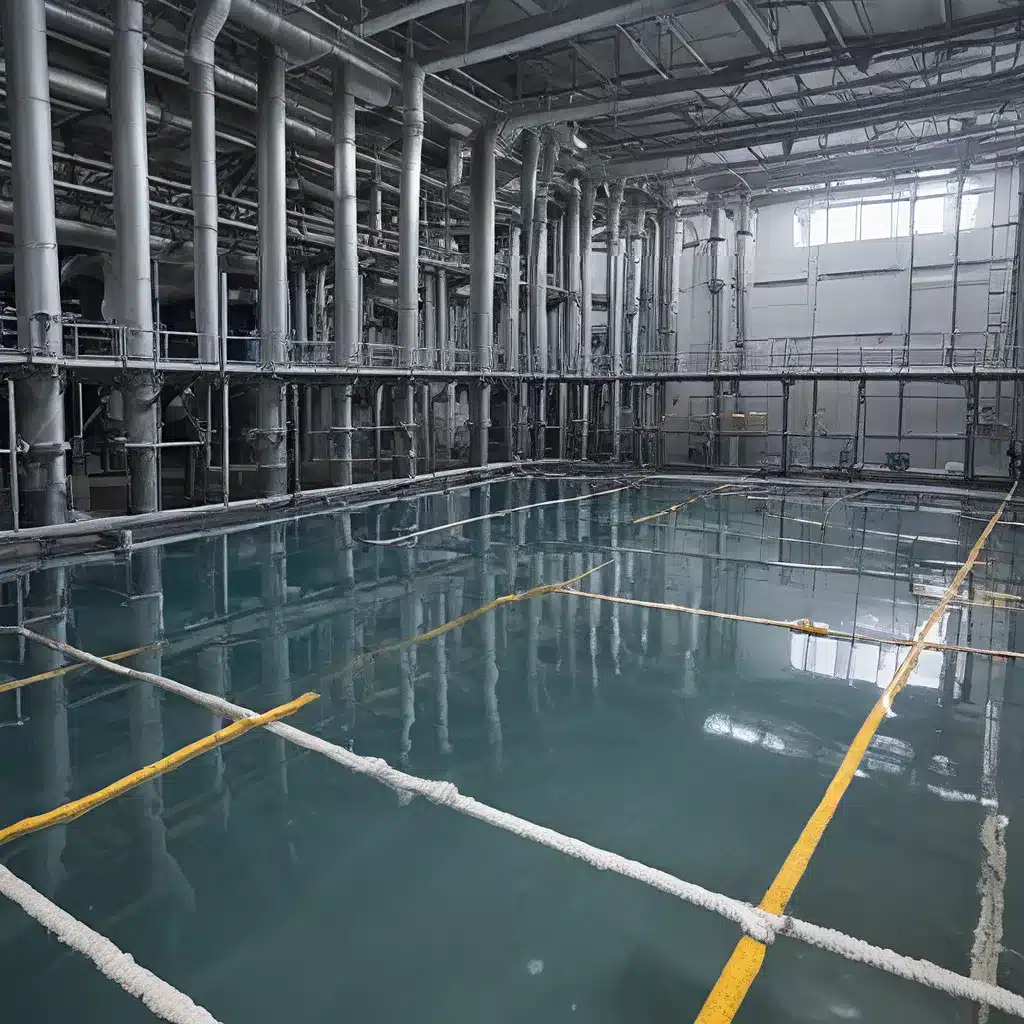
In the ever-evolving world of water treatment, the quest for efficiency is a constant driving force. As companies grapple with the challenges of water scarcity and environmental sustainability, the need to optimize water treatment processes has never been more paramount. Fortunately, the advent of advanced industrial cleaning techniques is offering a promising solution to this pressing issue.
The Importance of Water Efficiency in Industrial Operations
Let’s face it, water is the lifeblood of industrial operations. From cooling towers and boilers to equipment cleaning and production processes, this precious resource is vital for maintaining the smooth functioning of any manufacturing facility. However, the stark reality is that many industrial operations overlook the importance of water efficiency, leading to excessive water consumption and wastage.
Imagine a scenario where a manufacturing plant is hemorrhaging water like a leaky faucet that just won’t quit. Not only does this put a strain on the local water resources, but it also translates into higher operational costs and a tarnished reputation. It’s a lose-lose situation that no business wants to find itself in.
But what if I told you that there’s a way to transform this water-guzzling nightmare into a water-sipping dream? By embracing advanced industrial cleaning techniques, companies can unlock the secrets to optimizing their water treatment efficiency, ultimately contributing to environmental conservation and their bottom line.
Unlocking the Power of Advanced Industrial Cleaning Techniques
Imagine a world where water is recycled and reused, where processes are streamlined, and equipment is operating at peak efficiency. This is the promise of advanced industrial cleaning techniques, and it’s a world that’s well within our reach.
One of the key strategies in this arena is the implementation of water-recycling systems. These innovative solutions collect and treat wastewater, allowing it to be reused in various industrial processes. By minimizing the reliance on freshwater sources, companies can significantly reduce their water consumption and make a meaningful contribution to environmental sustainability.
But the magic doesn’t stop there. Advanced industrial cleaning techniques also involve the optimization of industrial processes, which can uncover hidden opportunities to reduce water usage. Through a thorough analysis of equipment, production lines, and workflows, businesses can identify and address inefficiencies, leading to a dramatic reduction in water wastage.
And let’s not forget about the role of cutting-edge technologies. By upgrading to water-efficient fixtures, automated water control systems, and advanced cleaning methods, industrial operations can take their water efficiency to new heights. Imagine a world where your facility runs like a well-oiled machine, with every drop of water meticulously accounted for and put to good use.
Monitoring and Measuring: The Key to Unlocking Optimization
But how do you know if your water efficiency efforts are paying off? The answer lies in a robust system of monitoring and measurement. By installing water meters, leveraging data analytics, and implementing smart monitoring systems, industrial operations can gain a comprehensive understanding of their water usage patterns.
Imagine being able to pinpoint the exact areas of your facility that are guzzling water like a thirsty camel in the desert. With this level of visibility, you can make targeted interventions, address inefficiencies, and track the progress of your water optimization efforts. It’s like having a water-saving GPS that guides you towards the most efficient route.
Embracing Best Practices for Sustainable Water Management
Of course, implementing advanced industrial cleaning techniques is just the beginning. To truly optimize water treatment efficiency, industrial operations must also embrace a range of best practices for sustainable water management.
Regular water audits, for example, can help identify areas of high consumption and uncover potential opportunities for improvement. And by educating and engaging employees on the importance of water conservation, companies can foster a culture of sustainability that permeates every corner of the facility.
But it doesn’t stop there. Proper maintenance and inspection of equipment, pipes, and fixtures are crucial for preventing leaks and ensuring optimal performance. And let’s not forget about the power of water-responsive landscaping, which can significantly reduce outdoor water consumption.
The Role of Government Regulations and Incentives
While the private sector plays a vital role in optimizing water treatment efficiency, the government also has a crucial part to play. Through the implementation of regulations and the provision of incentives, governments can encourage and empower industrial operations to prioritize sustainable water management.
Imagine a world where water efficiency standards are not only enforced but also rewarded. By setting clear guidelines and offering financial incentives, governments can create a compelling case for businesses to embrace advanced industrial cleaning techniques and other water-saving practices.
The Future of Water Efficiency in Industrial Operations
As we look towards the future, the promise of water efficiency in industrial operations is nothing short of breathtaking. By harnessing the power of advanced cleaning techniques, implementing robust monitoring and measurement systems, and aligning with government regulations and incentives, companies can not only contribute to environmental conservation but also unlock a world of cost savings and operational efficiency.
It’s a future where every drop of water is treated with the utmost care, where industrial processes are streamlined to minimize wastage, and where sustainability and profitability go hand in hand. And at the forefront of this revolution are companies like Inland Waters, whose unwavering commitment to water optimization is paving the way for a more sustainable tomorrow.
So, my friends, the time has come to dive deep into the world of advanced industrial cleaning techniques and unlock the secrets of water efficiency. Who knows, you might just find that the key to a more sustainable future lies in the very water that flows through your facility. Let’s get to work!


